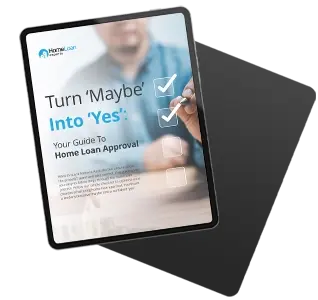What is a Contract of Sale?
A Contract Of Sale is a legally binding document outlining the terms and conditions agreed upon by the seller and buyer regarding the sale of a property. It also includes key details about the property, such as the names and addresses of the parties involved, the sale conditions, and the agreed price.
The contract is usually prepared by the seller’s conveyancer or solicitor, but in some cases, a real estate agent may draft it, especially for straightforward transactions. Regardless of who drafts the contract, it must be reviewed by a legal professional to ensure it meets all legal requirements and protects both parties. This is particularly important for properties with complex conditions like easements or encumbrances.
It provides clarity and legal protection to buyers and sellers. Buyers get assurance about the terms of the purchase, while sellers secure the deposit and confirm the buyer’s commitment. Having the contract reviewed by a conveyancer or solicitor ensures a smoother, more secure transaction for everyone involved.
What Is Included In The Contract Of Sale?
Each state has a different name for the Contract of Sale and they each use different terminology for the legal process of buying a home. For example, when buying a house in Victoria, the contract is known as a Contract of Sale of Real Estate, but in NSW, it’s known as a Contract of Sale of Land.
No matter the state, a typical Contract of Sale consists of the following:
- The names of the vendor and purchaser.
- The property address.
- The amount of the deposit that must be paid.
- The sale price of the property.
- The date of the property settlement.
- Certificate of title information.
- Whether the property will be available as a vacant possession, or if it is subject to a lease.
- Conditions of the sale such as financing information or whether additional building inspections are required.
- Other general and special conditions/encumbrances (mortgage or a lease agreement).
How Does A Contract Of Sale Work?
The contract of sale process begins when the seller decides to sell a property and prepares the legal agreement. Here’s how it works:
- Drafting the Contract: The seller’s solicitor or conveyancer drafts the contract, outlining all necessary details such as the sale price, settlement date, and any inclusions or exclusions (e.g., appliances, fixtures).
- Review by Both Parties: The buyer and seller review the contract to ensure it meets their expectations. At this stage, they may negotiate specific conditions, like making the sale subject to finance or building inspections.
- Signing the Contract: Both parties sign the contract, signifying mutual agreement to proceed with the transaction.
- Exchange of Contracts: The signed contracts are exchanged, confirming the deal. A deposit is typically paid by the buyer at this point.
Key Considerations Before Signing The Contract of Sale
Buying a house is one of the biggest investments you’ll make, so ensuring you’ve covered all bases before signing the Contract of Sale is essential. While the process can be exciting, overlooking important details could lead to costly mistakes. Here are the key things to watch out for during your property purchase journey:
Get Pre-Approval Before Signing
Securing a pre-approval for your home loan is a critical step before signing the Contract of Sale. A pre-approval gives you a clear understanding of your borrowing capacity and ensures you’re prepared financially, reducing the risk of delays or complications later.
Unwillingness To Negotiate
If the seller is unwilling to negotiate on the property price, it could be a red flag. Flexibility in price discussions is often a sign of good faith, and an unwillingness to negotiate might indicate issues with the property or unrealistic expectations from the vendor.
Lack Of Property Disclosures
Ensure the vendor provides full disclosure about the property’s condition and history. Without this, you’re entering the agreement blindly, unaware of any structural issues, past repairs, or potential problems that could surface later.
Bank Valuation Concerns
Sometimes, a bank’s valuation of the property may come in lower than the asking price. While this can’t always be predicted, you can mitigate the risk by requesting an upfront valuation to align your expectations and finances with the lender’s assessment.
Possession Conditions
Check whether the property is being sold as a vacant possession or if it’s subject to a lease. Consider whether the current possession arrangement aligns with your needs and timeline.
Building And Pest Inspections
Don’t skip the building and pest inspections. These checks can reveal hidden problems, such as structural damage or pest infestations, saving you from costly repairs down the line.
Home Building Insurance
Review home building insurance options before finalising the purchase. This ensures you’re covered from the moment you take possession of the property.
Taking the time to perform due diligence upfront can help you avoid potential pitfalls and safeguard your interests. If you’re unsure about any aspect of the sales contract, consult a solicitor or conveyancer for professional guidance. Remember, a little extra effort now can save you from problems in the future.
Easements In The Sales Contract
Easements in the Contract of Sale are legal rights that allow others to access or use parts of your property, such as shared driveways or utility maintenance areas. They can impact your renovation plans or even your loan approval. If you’re unsure, consult with your solicitor or conveyancer.
What Happens After A Contract Of Sale Is Signed?
Once the contract is signed, the property sale moves into the settlement phase, where the focus shifts to meeting the agreed terms and transferring ownership. Here’s what happens:
- Cooling-Off Period (if applicable): Depending on state regulations, the buyer may have a brief period to withdraw from the contract without penalty.
- Deposit Payment: The buyer pays the deposit, which is held in a trust account until settlement.
- Due Diligence: The buyer fulfills all contract conditions, such as securing finance approval, completing building and pest inspections, and ensuring any special conditions are met.
- Settlement Preparation: The buyer’s solicitor or conveyancer works with their lender to arrange the final payment and prepare for settlement.
- Final Inspection: The buyer conducts a final check of the property to ensure it’s in the agreed condition.
- Settlement Day: The ownership officially changes hands, with the buyer paying the remaining balance and receiving the property title.
Fast Track to Approval: Your Home Loan Checklist
A well-curated checklist to improve your chances of a home loan approval.

Disclaimer: Over the next few days, you’ll receive additional guides to help you on your homebuying journey. Occasionally, you’ll receive carefully curated home-buying tips, offers & schemes, and news articles. You can unsubscribe any time you want. View our Privacy Policy.
Partner With Experts Who Care
Understanding the contract of sale before purchasing a property is crucial so it’s important to review the details of the contract carefully and address any concerns with your solicitor or conveyancer. Find a comprehensive list of recommended conveyancers for each state along with their contact details.
Find a comprehensive list of recommended conveyancers for each state along with their contact details.
